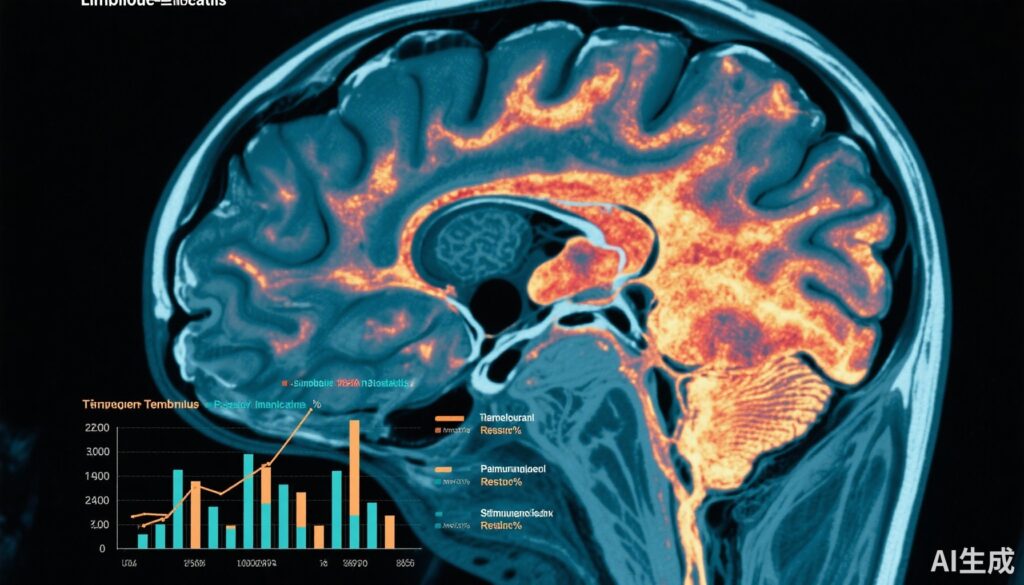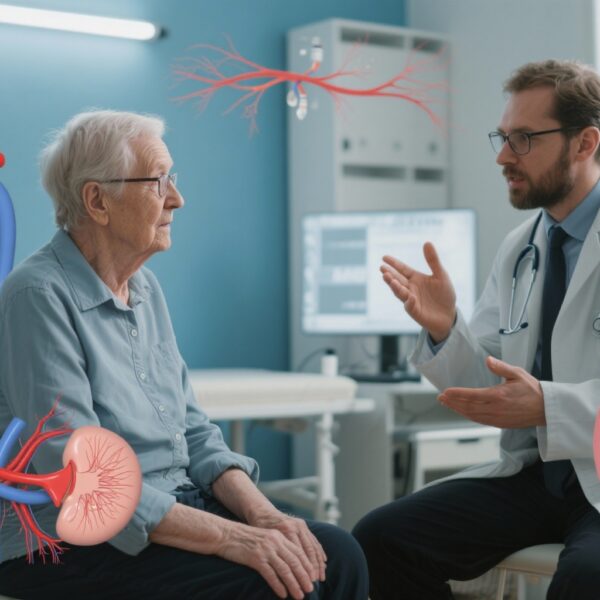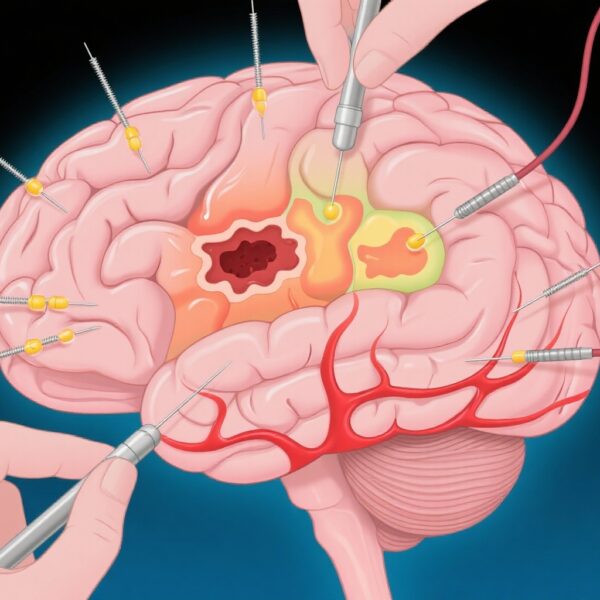Highlight
- Anti-LGI1 encephalitis patients rarely develop chronic autoimmune epilepsy (5.9%), with most achieving sustained seizure remission after immunotherapy.
- Longer time to seizure remission and presence of pilomotor seizures are associated with delayed seizure control and persistent cognitive impairment.
- Immunotherapy, especially second-line treatments, significantly increases the rate of seizure remission over time.
- The study supports reclassifying seizures after remission as acute symptomatic rather than chronic epilepsy due to relatively low seizure recurrence risk.
Study Background
Autoimmune encephalitis (AIE) with antibodies directed against leucine-rich glioma-inactivated 1 (LGI1) typically affects older adults and manifests with subacute cognitive decline, memory impairment, seizures, and psychiatric symptoms. The clinical course often includes faciobrachial dystonic seizures and other seizure types, showcasing an evolving epileptic syndrome within the limbic system. The introduction of immunotherapy (IT) in this condition has substantially improved outcomes by reducing seizure frequency and cognitive deficits. However, there remains a subset of patients who experience persistent seizures after treatment, evolving into autoimmune encephalitis-associated epilepsy (AEAE), which is characterized by ongoing epileptic activity independent of acute inflammatory disease.
This study addresses the unmet need for large-scale, long-term data characterizing seizure remission rates, epilepsy risk, and factors influencing these outcomes in anti-LGI1 encephalitis. Understanding these factors is critical to optimizing treatment protocols and prognostic counseling.
Study Design
This multicenter retrospective observational cohort study pooled data from three national referral centers and consortia focusing on autoimmune encephalitis. Inclusion criteria were defined as:
1. Definite LGI1 limbic encephalitis diagnosis per Graus criteria.
2. Documented seizure occurrence.
3. Follow-up duration of at least 24 months.
The cohort included 271 patients, with 236 meeting criteria for comprehensive analysis.
The investigators defined three primary objectives:
(1) Calculate the risk of seizure recurrence (ROSR) over time in patients who achieved seizure remission.
(2) Evaluate clinical and paraclinical biomarkers related to time to seizure remission using Cox proportional hazards models (n=188).
(3) Determine the incidence and predictive factors associated with AEAE (n=236).
Immunotherapy administration status was carefully documented, including first- and second-line treatments, providing a basis for assessing therapeutic impact on seizure outcomes.
Key Findings
Incidence of Autoimmune Encephalitis-Associated Epilepsy (AEAE):
AEAE occurred in 5.9% (16/271) of patients, indicating that chronic epilepsy secondary to anti-LGI1 encephalitis is uncommon but clinically significant.
Seizure Remission and Recurrence Risk:
The risk of seizure recurrence after remission demonstrated a gradual increase over time, with estimated ROSR at:
– 12 months: 9% (95% CI 4.5%-13%)
– 60 months: 20% (95% CI 11%-28%)
– 120 months: 53% (95% CI 14%-74%)
These findings suggest that while there is increasing risk over extended follow-up, many patients maintain enduring seizure freedom.
Association of Seizure Types and Immunotherapy with Remission:
Patients experiencing pilomotor seizures had significantly lower rates of seizure remission (HR 0.58, 95% CI 0.55-0.60, p < 0.001), identifying this seizure type as a biomarker for protracted epilepsy course.
Administration of immunotherapy robustly correlated with earlier seizure remission (HR 12.4, 95% CI 9.67-16.0, p < 0.001), with second-line therapies linked to a trend towards faster remission (log-rank p=0.019). This reaffirms IT’s critical role in seizure control.
Cognitive Outcomes:
Persistent cognitive impairment was more common among patients developing AEAE (100% vs 60%, p=0.001) and those with longer duration to seizure remission (OR 1.36 per year, p=0.025), reinforcing a relationship between ongoing seizures and lasting neurocognitive sequelae.
Expert Commentary
This study substantially advances understanding of seizure outcomes in anti-LGI1 encephalitis by providing robust, large-cohort long-term data. The relatively low incidence of AEAE supports cautious yet optimistic prognosis for seizure remission if immunotherapy is applied timely and adequately.
Notably, the low ROSR after remission challenges the conventional labeling of these patients as having epilepsy, an important clinical distinction. Diagnosing acute symptomatic seizures instead could better guide management and reduce persistent antiepileptic drug use.
Limitations include retrospective design and potential heterogeneity in treatment regimens across centers. Further prospective studies are warranted to confirm findings and clarify the optimal timing and type of immunotherapy interventions.
Pathophysiologically, the persistence of pilomotor seizures as a predictor may reflect limbic system circuit involvement and autonomic dysfunction, meriting further mechanistic exploration.
Conclusion
The long-term prognosis for seizure remission in anti-LGI1 encephalitis is favorable under immunotherapy, with autoimmune epilepsy being rare. Biomarkers such as pilomotor seizure presence and longer time to remission identify patients at risk for persistent seizures and cognitive deficits.
These data suggest a need to refine seizure classification post-encephalitis toward acute symptomatic seizures once remission is achieved, which may impact treatment decisions and patient counseling.
Ongoing research should focus on optimizing immunotherapy strategies and elucidating neurobiological mechanisms linking seizure persistence to cognitive outcomes.
Funding and Clinical Trials
The study was supported by national research grants and conducted within established autoimmune encephalitis consortiums. No specific clinical trial registration was reported.
References
Baumgartner T, Freyberg M, Campetella L, et al. Risk of Epilepsy and Factors Associated With Time to Seizure Remission in Anti-LGI1 Encephalitis: Long-Term Outcome in 236 Patients. Neurol Neuroimmunol Neuroinflamm. 2025 Nov;12(6):e200469. doi:10.1212/NXI.0000000000200469. PMID: 40953325; PMCID: PMC12440303.


